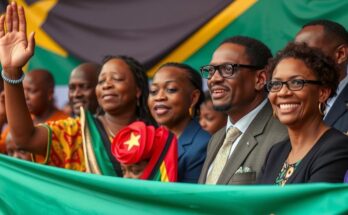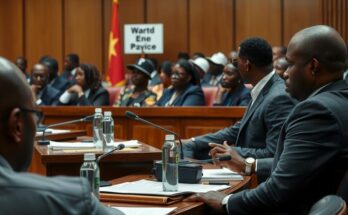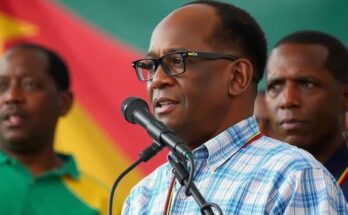The upcoming presidential election encapsulates the complexities and responsibilities that await the next president, transcending the often superficial nature of campaign discussions. Voters must recognize the immense challenges related to national security, international relations, domestic issues, and unforeseen crises that any new president will encounter. The election will determine not just a person but the values and vision to lead the nation forward amidst these ongoing issues and potential surprises.
The significance of the presidency extends far beyond the campaign rhetoric often seen during elections. Once a candidate takes the oath of office, they confront the immediate and stark realities associated with the position. For instance, as President Barack Obama prepared for his inaugural address in 2009, he was faced with a serious threat; hidden in his jacket pocket were evacuation instructions meant for a potential terrorist attack affecting the large crowd present on the National Mall. The individual eventually selected as the next commander-in-chief will assume control over thousands of nuclear weapons and lead armed forces deployed across more than 150 nations. They will be expected to navigate complex geopolitical tensions with nations such as Russia and China, both of which present challenges to the framework of international relations that the United States has historically supported. Russia’s aggression toward NATO allies and China’s stance on Taiwan necessitate vigilant protection by the next president. In the Middle East, numerous complicated issues remain, as acknowledged by President Biden throughout his tenure. In addition to these known dangers, it is nearly unavoidable that the next president will be confronted with unforeseen obstacles, a lesson derived from previous election cycles. For instance, during the 2000 presidential campaigns, terrorism was seldom addressed; however, it swiftly became a dominating theme in global politics post-September 11 attacks. Former Governor Jeb Bush previously articulated this perspective: “The next president’s going to be confronted by an unforeseen challenge; that’s almost certain,” illustrating the necessity for readiness in the face of potential crises, which could range from pandemics to natural disasters or security threats. The ramifications of the COVID-19 pandemic are an urgent reminder of the unforeseen challenges that can arise. The succeeding president may also need to navigate significant issues, such as major cyber-attacks or economic instabilities. While conversations about domestic issues like border security, inflation, and reproductive rights dominate current discussions, other persistent challenges continue to loom. These include continuously rising costs in healthcare, education, and housing, along with the increasing implications of artificial intelligence on employment. Furthermore, escalating national debt poses a significant risk if not adequately managed, coupled with the already profound impacts of climate change. Addressing these multifaceted issues cannot be accomplished through military action alone; they will require a blend of foresight, determination, and a commitment to governance that often does not yield immediate recognition. Voters are not merely selecting a person; they are choosing the very values, temperaments, and character traits that will define the executive branch, which encompasses a government workforce of one million civilians, 4,000 of whom will be appointed by the elected president imminently. Historically, it has been presumed that voters understand these grave responsibilities and utilize rational judgment to select the leader capable of managing the nation’s complexities. However, this long-standing premise faces challenges today, particularly as the political landscape is clouded by misinformation—exemplified by Donald Trump’s propagandistic narrative regarding the legitimacy of his prior election loss. Consequently, a fundamental test for the incoming president will commence before they are sworn into office, particularly in how they navigate victory or the essence of defeat during this turbulent electoral period.
Presidential elections are pivotal moments in American politics, determining not only the individual who will lead the country but also the set of challenges they will face upon taking office. The complex nature of global and domestic issues underscores the importance of choosing a candidate who possesses both vision and the capacity to respond to unexpected crises. This article highlights how the realities of the presidential role far exceed the superficial discussions commonly associated with election campaigns, emphasizing the intersection of character, readiness, and the pressing dilemmas confronting the next president. The discourse provides a historical context to emphasize the unpredictability of the presidency and its weighty responsibilities, distinguishing it from the often abstract nature of campaign dialogues.
In conclusion, the responsibilities associated with the presidency are profound and multifaceted, encompassing a wide range of national and international challenges. The upcoming election will not simply determine a leader but also reflect the values and vision that the American populace seeks for their future. Voters must consider the profound implications of their choice, particularly in light of potential unforeseen events that could disrupt the nation profoundly. Ultimately, the character and preparedness of the elected candidate will dictate the efficacy with which they confront these challenges, reinforcing the need for a careful and considered electoral decision.
Original Source: www.cbsnews.com




